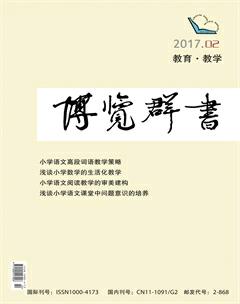Using Alternative Assessment Methods in Foreign Language Teaching. Case Study: Alternative Assessment of Business English for UniversityStudents
Zhu+Yanju
Yangtze University, Hubei Province
Abstract: Alternative assessment methods have proven to be a comprehensive tool for testing language learners, especially at university level. As strategies based on the permanent assessment of students linguistic level, the methods of alternative assessment such as the portfolio or the project, share - due to the amount and the complexity of information they involve - the characteristics of formative and summative evaluation. The present paper aims at sharing the authors experience of using alternative assessment during the Business English course of university students, a type of assessment which, as presumed in the premises of the research, offered the opportunity of quality and comprehensive evaluation not only of the learners linguistic competence, but also of their communicative competence.
Keywords: alternative assessment, communicative competence, formative evaluation, permanent assessment.
一、Introduction
The main purpose of assessment – be it initial, mid-term or final – is a double one: on the one hand to provide learners with a corrective feedback, so that they might know their strong and weak points and on the other hand to rank students in an educational institution according to their performance. This second role of testing, to rank learners, makes the pre-testing activities of the assessor a specific importance, as the format of the test will trigger certain results.
Most linguistic tests are based on tasks assessing the students four main linguistic abilities developed by courses; reading, writing, listening and speaking, or in other words they test grammar, vocabulary, orthography. It is understandable then that students will prepare for obtaining good results in only certain directions of language learning.
The existence of more learning styles should most logically trigger the existence of more different assessment methods and testing formats that might accurately describe the students progress.
The concept of alternative testing was coined to define all those possible activities which are not formal tests but which can be used for assessing learning performance, as alternatives to the conventional methods of evaluating linguistic progress and performance. Concepts such as alternative assessment, authentic assessment, portfolio-based assessment, holistic assessment, integrative assessment are used with the same value as alternative testing. (Cerghit, 2002).
二、The characteristics of alternative assessment
Alternative testing is a strategy based on the permanent assessment of students linguistic level, which is why it is also called formative assessment. There are however methods of alternative assessment such as the portfolio or the project which, due to the amount and the complexity of information the involve share the characteristics of formative and summative evaluation, especially if their deadline is the end of the semester or of the academic year.
The idea of a richer assessment framework for students and pupils is not a new one; its advantages were noticed more than eighty decades ago (Tyler, 1935) but it is only recently that it has started to be seen as a correct path and a key tool towards reform in education. Gathering information on the students linguistic level from educational tasks in which they are involved regularly is, especially at a higher education level an inspired way of testing not only the students linguistic competence but also their communicative competence, which is, in our opinion, the ultimate goal of any foreign language course.
Studying the very names of the concepts used to define the new type of alternative assessment, there are two characteristics, two terms that are reiterated: performance and authentic, which concentrate in themselves the core characteristics of alternative assessment: performance – that is, the student has to produce a directly or indirectly observable response by means of a product – and authentic, which means that the nature of the task and the context in which the assessment is made are relevant and represent aspects of real life.
The purposes of the alternative testing methods are considerably wider than those of conventional tests for the very reason that they are themselves much richer and offer a wide range of possibilities.
三、Conclusion
We may conclude that alternative assessment methods are competence oriented and they are based on cognitive abilities and affective learning (Weir, 1990). The interactive nature of modern teaching extends to the assessment stage of learning, turning it into a valuable tool of practicing communication abilities and competences.
References:
[1]Cerghit, I., Metode alternative de evaluare (Alternative Methods of Evaluation), Cluj, Clujeana Publishing House, 2002.
[2]Dejica-Car?i?, A. & D. Dejica-Car?i?. “Tentative suggestions regarding the development of foreign language oral communication skills in students at universities of applied sciences”. In Procedia – Social and Behavioral Sciences, Elsevier, 2013,pp. 934-938.

